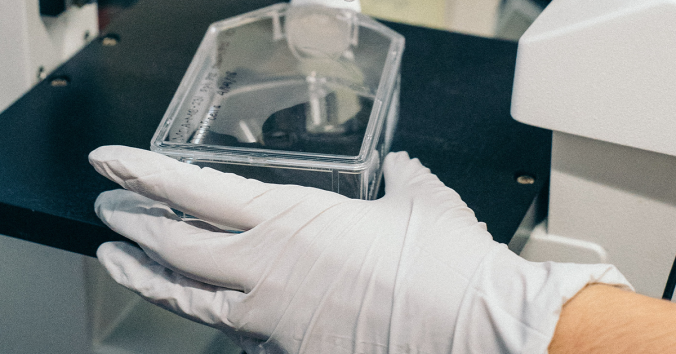A few years ago, my colleague Pär Segerdahl published a blog post on why bioethicists do empirical studies. He pointed out that surveys and interview studies on what people think hardly provide evidence that can decide controversial ethical issues, for example whether euthanasia should be allowed. Empirical studies rather give us a better grasp of the problem itself. They help us see what is actually at stake for people. I agree with him that ethical issues are not decided by surveys and interview studies and that such studies rather help us to see more clearly the meaning of the issues.
In this post, I want to further exemplify how empirical methods can nuance ethical questions and help us see what is at stake for people: help us see what we need to consider in the ethical discussion. I have in mind how, through a well-considered choice of empirical method, one can better describe the relative importance of ethical difficulties, values and preferences among stakeholders, as well as conflicts between ethical views. How? I am thinking of methods where respondents do not just answer what they think on certain individual issues, but are faced with complex scenarios where several factors are simultaneously at stake. Even if you have the firm opinion that drugs should not have side effects, are you perhaps still prepared to choose such a drug if it is more effective against your symptoms than other drugs, or is cheaper, or easier to use? In such studies, we create a multidimensional world with nuances for respondents to make complex decisions in.
Here is my example: Soon, therapies based on human embryonic stem cells may become a reality for patients with Parkinson’s disease. But is it morally acceptable to use human embryonic stem cells (hESC) for drug therapy? This has long been a controversial issue, partly because the embryo is destroyed when the stem cells are harvested. Perhaps the question is about to become even more topical now, when countries are changing legislation in a direction that gives the embryo a higher status and more legal protection. It is therefore particularly important that research provides a nuanced picture of the issues. In light of the political landscape and the new possibilities for treating patients with Parkinson’s, a more complex empirical method can support a better contemporary discussion about what types of research and therapies are within the scope of what can be allowed to be done with an embryo. The discussion concerns both ethics and law and must also include scientific challenges to ensure that stem cell research and therapies are carried out in ethically acceptable ways.
A common way to empirically examine the ethical issue is to look at the ethical arguments for and against the destruction of human embryos: to examine how different actors think and feel about this. Undoubtedly, such studies help us see what is at stake. But they can also easily steer respondents towards a yes-or-no answer, a pro-or-against attitude. Therefore, it is important to choose an empirical method that elicits perceived benefits and risks and explores multiple dimensions of the problem. How do patients feel about taking a medicine based on leftover embryos that not only relieves their symptoms but also repairs the damage, while the level of knowledge is low? It is not easy to answer such a question, but reality often has this complexity.
One method that can stage such complex considerations is a choice-based survey called Discrete Choice Experiments (DCE). With that method, we can investigate ethically sensitive issues and use the results to describe more fully the relative importance of ethical difficulties, values and preferences among stakeholders, as well as conflicts between ethical views. DCE provides an understanding of the balance between factors involved in different situations. In a new article in BMC Medical Ethics, my colleagues and I have investigated which factors are associated with the preferences of patients with Parkinson’s disease regarding embryonic stem cell-based treatments for the disease in the future. We invited patients to participate in a web-based choice-based experiment to assess the importance of the following factors: (1) type of treatment, (2) purpose of the treatment, (3) available knowledge about different types of treatment, (4) effect on symptoms and (5) the risk of serious side effects. The results showed that the fourth factor, “effect on symptoms,” was the most important factor in the choice of treatment option. Patients’ previous experience with treatment, side effects and advanced treatment therapy, as well as religious beliefs were associated with what they thought was most important, but not their view of what an embryo is. If you want to read more, you can find the article here: Patients accept therapy using embryonic stem cells for Parkinson’s disease: a discrete choice experiment.
These kinds of results from DCE studies can, in my opinion, help us to understand and frame ethical questions in ways that reflect how people think when multiple factors are at stake simultaneously. I believe that the more realistic complexity of such studies can contribute to more informed ethical considerations. I believe that they could also strengthen democratic processes by giving public conversation a background of more nuanced empirical findings.

Written by…
Jennifer Viberg Johansson, Associate Professor in Medical Ethics at Uppsala University’s Centre for Research Ethics & Bioethics.
Bywall, K.S., Drevin, J., Groothuis-Oudshoorn, C. et al. Patients accept therapy using embryonic stem cells for Parkinson’s disease: a discrete choice experiment. BMC Med Ethics 24, 83 (2023). https://doi.org/10.1186/s12910-023-00966-1
Ethics needs empirical input





Recent Comments